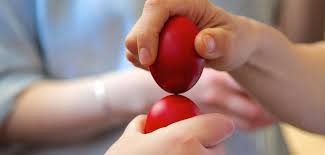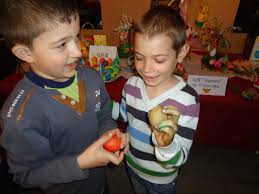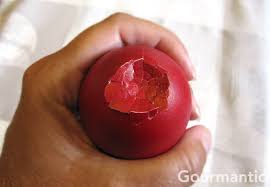- Bulgarian customs and traditions:
Koledari are traditional Slavic performers of a ceremony called koleduvane. Both words come from the Church Slavonic word Koleda, a celebration incorporated later into Christmas. In Bulgaria this type of caroling is called "коледуване" (koleduvane)
The koledari carolers traditionally start their rounds at midnight on Christmas Eve. They visit the houses of their relatives, neighbours and other people in the village. The caroling is usually performed by young men accompanied by an elder one. Each caroler carries a stick called gega. They wish the people from the village health, wealth and happiness. The time for the koleduvane is strictly defined by tradition - from midnight to dawn on Christmas Eve. With the power of the songs they have to chase away the demons. By sunrise they lose that power and stop their rounds. Preparations begin on 20th of December. Men are in traditional festive attire with a special decoration on their hats.
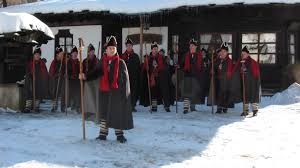
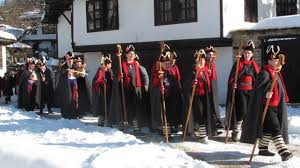
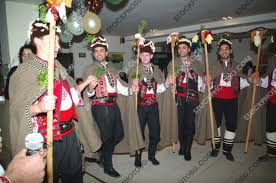
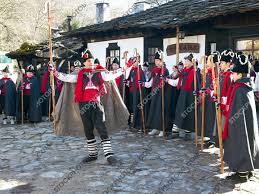
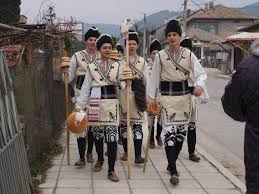
https://www.youtube.com/watch?v=97jUN8zSci0
Baba Marta: A spring tradition
According to popular Bulgarian belief, the month of March is female in nature and the weather is considered to be as unreliable as the character of a woman: one day it may be sunny and warm but the next it can be stormy and freezing cold.
Bulgarians respect “Baba Marta” highly. On the first day of March we give relatives and friends a martenitsa - a red and white tassel – to bring health and luck. We pinned it to our clothes or tie it around wrists wishing each other health and happiness. This is an ancient Bulgarian tradition, which is more than a thousand years old and symbolises the end of winter and the coming of spring.
It is believed that the red colour grants fertility to both people and nature, and the white gives strength to grow rich crops. We keep our martenitsas on until the first storks and swallows arrive or the first cuckoos call. Then we take our martenitsas off and tie them to a fruit tree or leave them under a stone and make a wish.
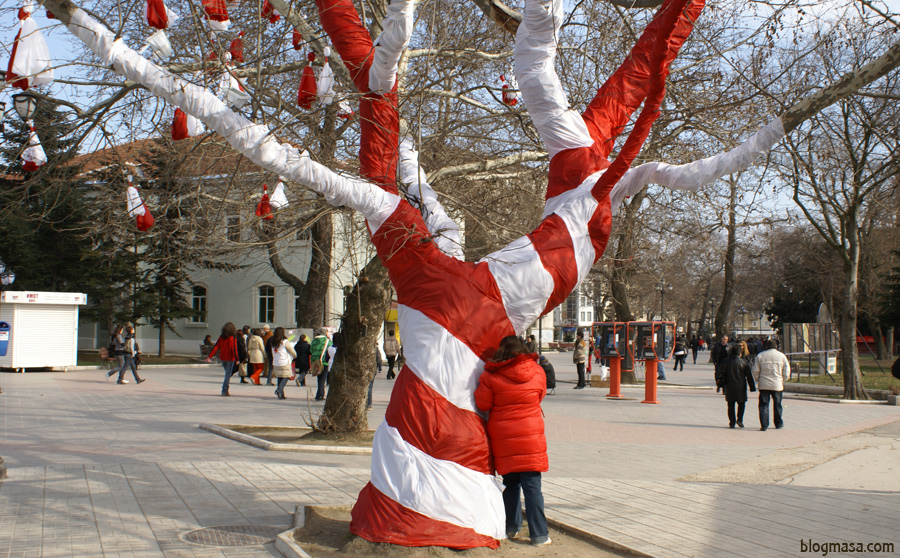
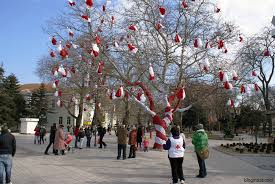
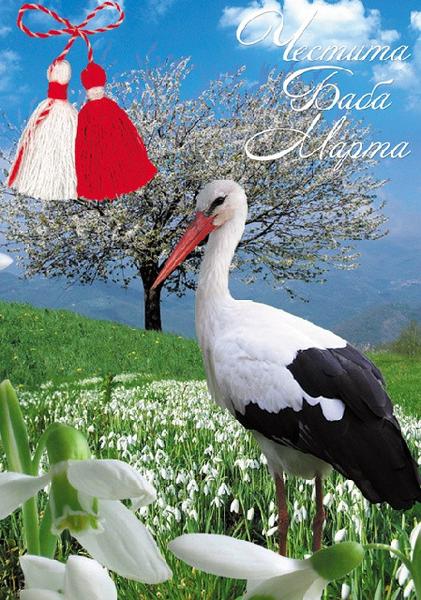
- French customs and traditions
Аз сьм една бьлгарка, която в един момент от живота си стана това, което Еразъм ни казваше – “ всички ние сме един народ“.
Je suis une personne multiple qui cherche à conjuguer les cultures. Dans l’esprit d’Erasme.
Sono una persona e anche un’insegnante versatile che cerca di condvidere la cultura tra i tre paesi.Nello spiritto dell’Erasmus.
I am a multiple human being who wants to share a set of cultures. In the spirit of Erasmus.
How Bulgarians Celebrate Easter
Easter or (Velikden in Bulgarian, which means a Great Day) is one of the most significant holidays in Bulgaria. It is a celebration of life, of Christ’s victory over sin and death. The Bulgarian Easter is celebrated according to the Bulgarian Orthodox church’s calendar. As any important holiday it comes with its own ancient and modern traditions.
The preparation for Easter in Bulgaria begins with a long forty - day- fast called ”The Great Fast”. During it some Christians abstain from certain kinds of food like meat, dairy products and eggs, believing that regular fasting is a crucial discipline for one’s spiritual growth. The week right before Easter is called “The Great or Holy Week”. Each day of this week is called “great” – Great Monday, Great Friday, etc. During this week, people go to different church services, fast and prepare for the feast.
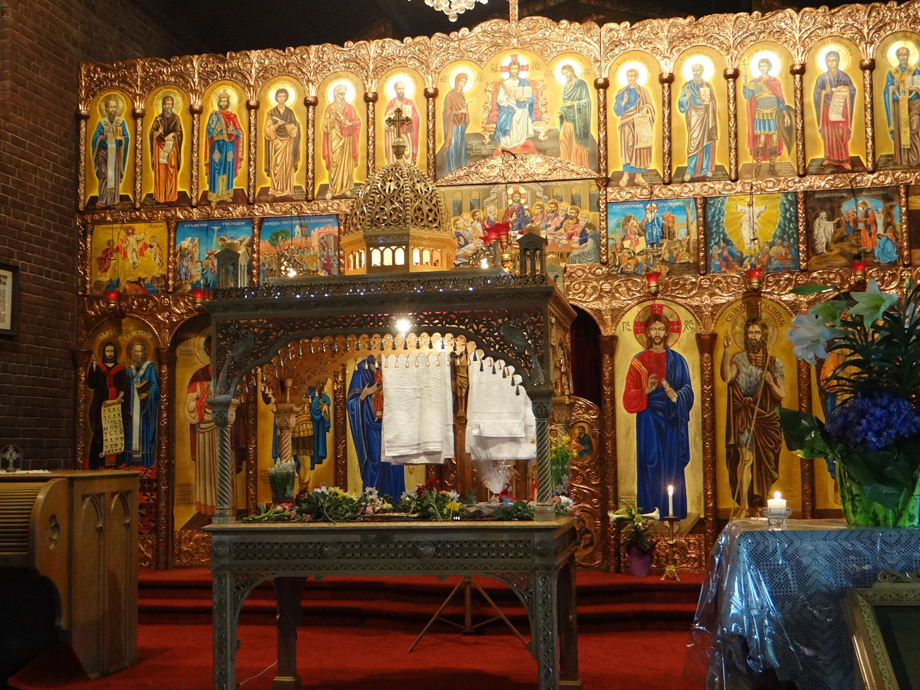
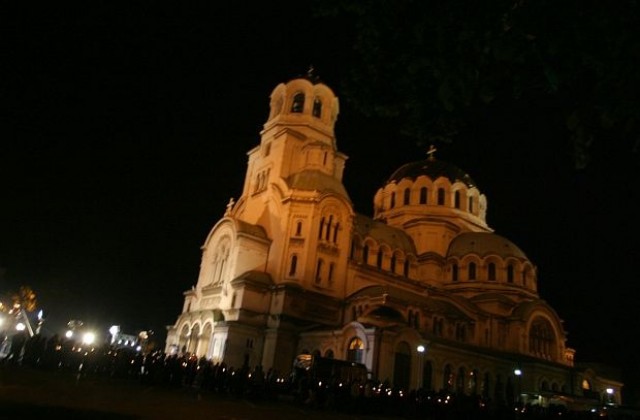
The symbols of Bulgarian Easter are the coloufully dyed eggs and a special bread called kozunak.
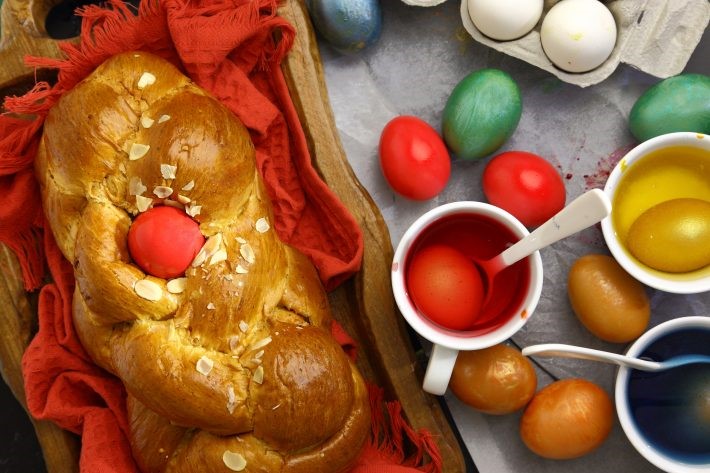
Traditionally, the Easter eggs are painted on Great Thursday or Great Saturday in the early morning before sunrise. The first egg must be dyed red. The oldest woman of the family paints a cross on the children’ s foreheads with it for health and luck. Then this egg is left in front of the home icon (painting of a saint) and preserved until next Easter. The old egg, i.e.from the previous Easter, is used for predicting what the coming year will be. If the egg is dry, the year will be prosperous. If it is rotting it will be a bad year. The rest of the eggs are painted in different colours and ways. The Easter eggs are not consumed before Great Sunday.
The Bulgarian Easter bread called kozunak is made on Great Friday or Great Saturday by the women of the house (nowadays it is simply bought from the local bakery). It is a sweet bread, usually covered in sugar and shaped in different ways.
Easter in Bulgaria is celebrated three days – from Great Friday to Great Sunday. On Great Saturday evening people go to church. At exactly midnight, the church bells start ringing and the priest greets people with “Hristos voskrese” (Christ has risen) to which they reply “Voistina voskrese” (Indeed, he has risen). Then the priest lights a candle and passes the flame to the people who share it each other wishing health and happiness.The candles are silently brought home.
Egg tapping, or also known as egg fight, is a favourite custom on the Easter table not only for the children but for the adults as well. The rule of the game is simple. One holds a hard-boiled egg and taps the egg of another participant with one's own egg intending to break the other's, without breaking one's own. The person who keeps an unbroken egg is said to enjoy a good health till next Easter.
